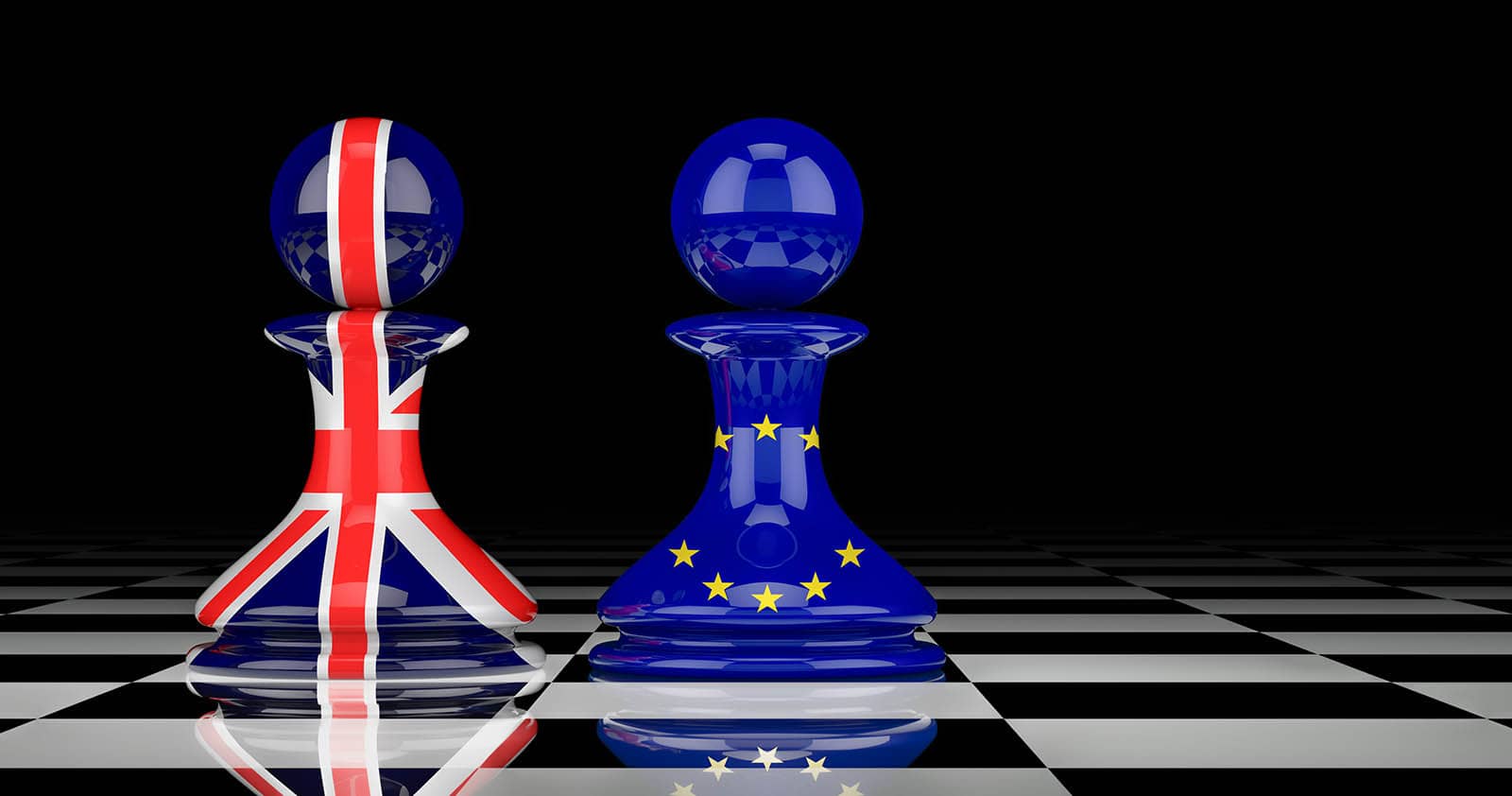Nordea: 'No Deal' Likely, Pound Sterling Could Retreat Towards 1.08 against the Euro

Image © Adobe Images
GBP/EUR spot rate at time of publication: 1.1044
Bank transfer rate (indicative guide): 1.0757-1.0835
FX specialist providers (indicative guide): 1.0960
More information on FX specialist rates here
Foreign exchange analysts at a leading Scandanavian lender and investment bank have said a 'no deal' outcome to post-Brexit trade talks is likely, and the Pound is likely to weather the outcome.
Nordea Markets says in a note out Friday they are expecting no deal to be reached, but the two sides will agree to a 'no tariffs scenario' whereby an effective last-minute extension of the transition period is agreed.
They say to expect a framework paper for further negotiations being agreed upon before New Year.
"A prolongation of the current 'transition setup' would be bad news for deal hopes," says Nordea Markets Economist Andreas Steno Larsen.
The Pound is back in the red on Friday owing to overnight news reports that the EU has brought fresh demands to the negotiating table, following last-ditch lobbying of EU capitals by France.
It is believed France is unhappy with the concessions made in fisheries and the rules designed to try and establish a level playing field for EU and UK businesses.
The Pound-to-Euro exchange rate has fallen to 1.1045 on Friday while the Pound-to-Dollar exchange rate has reversed from fresh three-month highs to 1.3433.
Secure a retail exchange rate that is between 3-5% stronger than offered by leading banks, learn more.
What would happen to the Pound in the event that the EU and UK agree that a deal is not possible next week?
"The market is decently prepared for a no deal, why it will not lead to GBP panic," says Larsen. "We expect the GBP to weaken in such a scenario but nothing out of the ordinary."
So how would the two sides arrive at a 'no deal' scenario? According to Larsen, economic game theory is a useful explainer.
"A prisoner's dilemma is a paradox in decision analysis in which two individuals or countries acting in their own self-interests do not produce the optimal outcome. In this case both EU and UK obviously act in self-interest meaning that a deal is very difficult to strike," says Larsen.

"The problem is that two parties acting in political self-interest will always end in a stalemate due to political interests. The EU will not want the UK to get too good conditions as it will spur other countries to leave the European Union, while the UK administration will not be willing to cave in to EU demands as it will be too costly on the domestic political front. This stalemate can only be broken by a trigger move, which could be to allow tariffs to be implemented," says Larsen.
The analyst says if the EU implements tariffs by January 01, then we see a much larger probability of a deal being struck during the first half of 2020.
This view is held by France's President Emmanuel Macron, who has said this week France will veto a deal they don't like. Media reports have said France's thinking is that a "chastened" UK will return back to the table in 2021 in a more agreeable mood.
In a 'no deal, no tariffs' scenario with a prolongation of the transitional setup, Nordea Markets forecast the Pound-Euro exchange rate to weaken moderately towards 1.0870-1.0810.
"The market is already bearishly positioned in GBP and a prolongation scenario is not really scary," says Larsen.
Under a 'no deal, added tariffs' scenario, the Pound would sell-off swiftly in to the deadline, but this should be followed by a sharp recovery "as markets will quickly chase the momentum towards a deal as both parties will suddenly have a clear incentives to cooperate around a deal".




